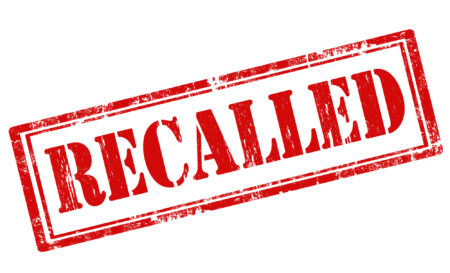Here at VUEMED we have high hopes for the healthcare supply chain in 2022. Although some people may feel that the industry hasn’t changed much (despite strong expectations), others are clearly seeing positive developments in the areas of resilience and contingency planning, data analytics and a “migration to digitalization.” Personally, after more than 15 years working in the healthcare supply chain and inventory management space, we are extremely excited to finally be witnessing a true embrace of innovation and automated technology solutions by hospitals, and are proud to be on the cutting edge of this growth that is transforming the industry. Innovation is not only key for cutting costs and streamlining operations, it’s also essential for taking better care of patients and improving clinical outcomes.
Here are some of the major trends that we anticipate continuing in 2022:
1. Investment in the fundamental technology and data infrastructure to support care delivery
Healthcare delivery is in the process of both consolidating and diversifying, and hospitals are realizing that preparing for scale requires enterprise-level systems, accurate and reliable data, and designated supply chain teams to set up and manage the physical and IT infrastructure, logistics, processes and data. Successful enterprise scaling means that existing silos – where each area, location or department does its own thing (e.g. billing, inventory) – are no longer feasible. It also means that systems must be able to support different types of healthcare delivery settings (clinic, urgent care facility, nursing home, hospital) in addressing their supply chain needs in a systematic and scalable way.
2. Focus on risk mitigation and optimizing for risk management (versus just cost)
Hospitals will continue to pursue a closer integration of their clinical and finance teams in order to understand the full implications of supply chain impacts and also to build a response plan, such as appropriate item substitute, care protocols, and so on. The ability to forecast clinical supply needs (based on past consumption and anticipated types of patient procedures), to have relationships with your suppliers, and to adjust quickly in case of abrupt changes, including triaging/redirecting resources, will also only grow in importance. This is one key way for hospitals to build predictability and resilience into their supply chain.
An article in DHL Supply Chain Insights magazine sums it up well, “Above all, companies must understand that the supply chain is undergoing a fundamental change, driven by the biggest disrupter in the history of modern supply chain management. Companies have two choices: operate in a reactive mode and suffer the consequences. Or radically change and invest in a predictive supply chain risk management model that changes how the enterprise and its partners work together to solve problems and serve the customer.”
3. Commitment to leadership and workforce development
The healthcare industry will prioritize even more the acquisition of skills and perspectives needed to take on new challenges in rapidly evolving environments and to innovate, as well as to work with both multiple internal constituents (clinical, IT, Finance) and externally across industry partners and vendors. This means strategic problem-solving skills, along with talent management and career development for staff, which will continue to be important for employee retention.
4. Interest in clinical inventory management automation and standardization
Hospitals are now seeing the advantages of automated technology for their clinical departments and will continue to pursue it. Automation frees clinical staff from tedious, manual and time-consuming documentation, billing and inventory tasks, thus enabling them to focus on their main priority – patient care. And automation ensures accurate and reliable real-time data for managing the supply chain effectively.
RAIN RFID is the most powerful automated real-time data capture technology and inventory management solution on the market today, and is finally being embraced by the healthcare industry as it has been in other industries for years. As noted in an Impinj blog, “In an increasingly interconnected and complex world, supply chains are unlikely to become any less complicated in the future. Enabling automation and machine learning with real-time data from RAIN RFID can help your business increase its agility—and enhance your ability to navigate whatever surprising events might occur.”
Vince Vickers, healthcare industry consultant and KPMG partner, put it well in a recent interview with Becker’s Healthcare: “There has been an underinvestment in technology in healthcare in the back-office for decades…[The adoption of Cloud-based technologies will improve the supply chain through] cloud applications, data management, Internet of Things connectivity and tracking, artificial intelligence, robotics and other enabling technologies that have been commonplace in other industries for five to 10 years.”
We look forward to continuing the work with our customers and partners to advance the clinically integrated supply chain. Please join us for meaningful and fruitful discussions on these subjects at the upcoming HIMSS22 Clinically Integrated Supply Chain Symposium, where Lana Makhanik, COO and Co-Founder, will be participating on two panels on March 14: Session 3: Demand-Matching: Collaborative Care Delivery, 11:15 am, and Session 5: How Data Fluency Supports Clinical Care Delivery, 2:30 pm.





